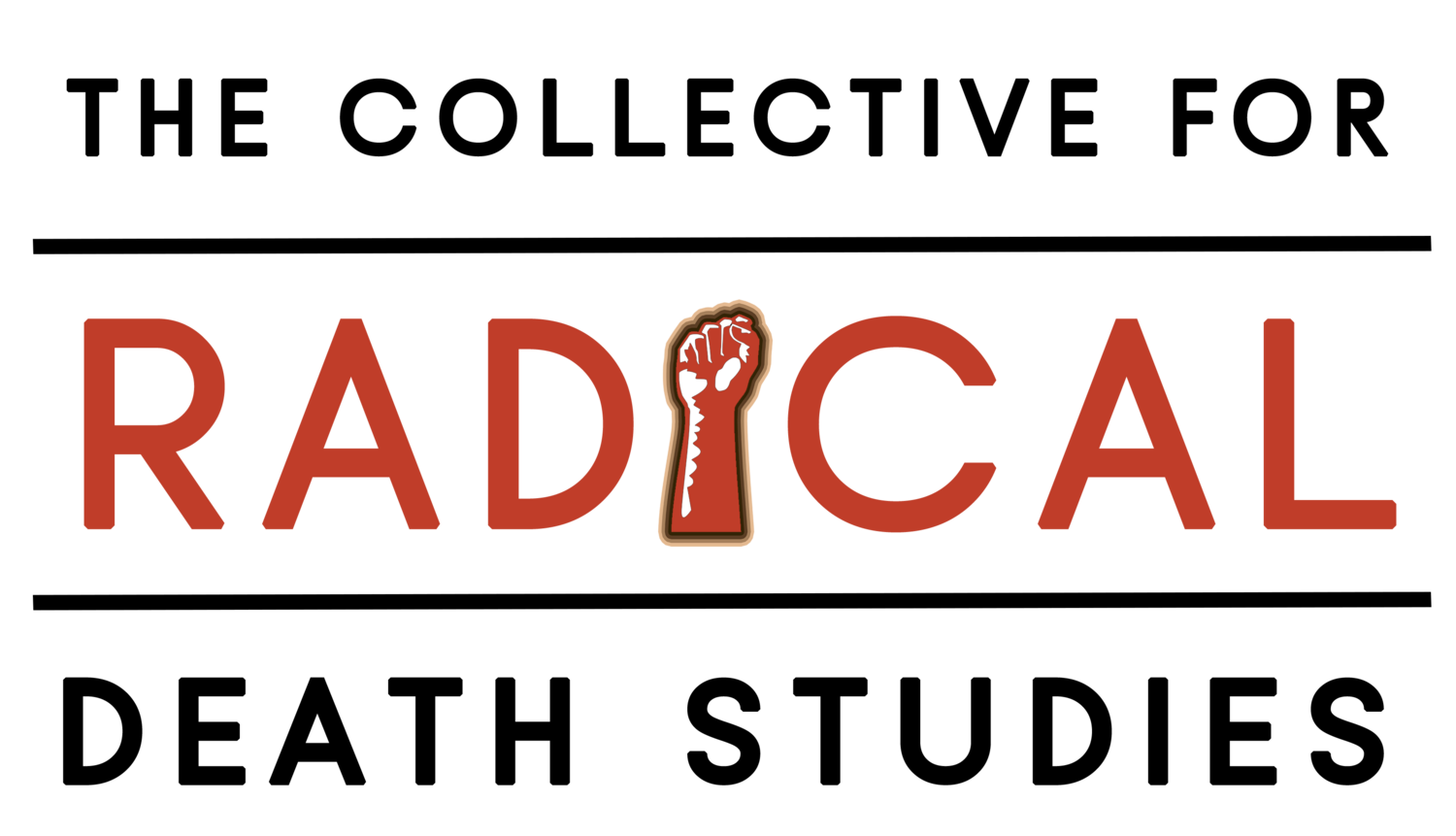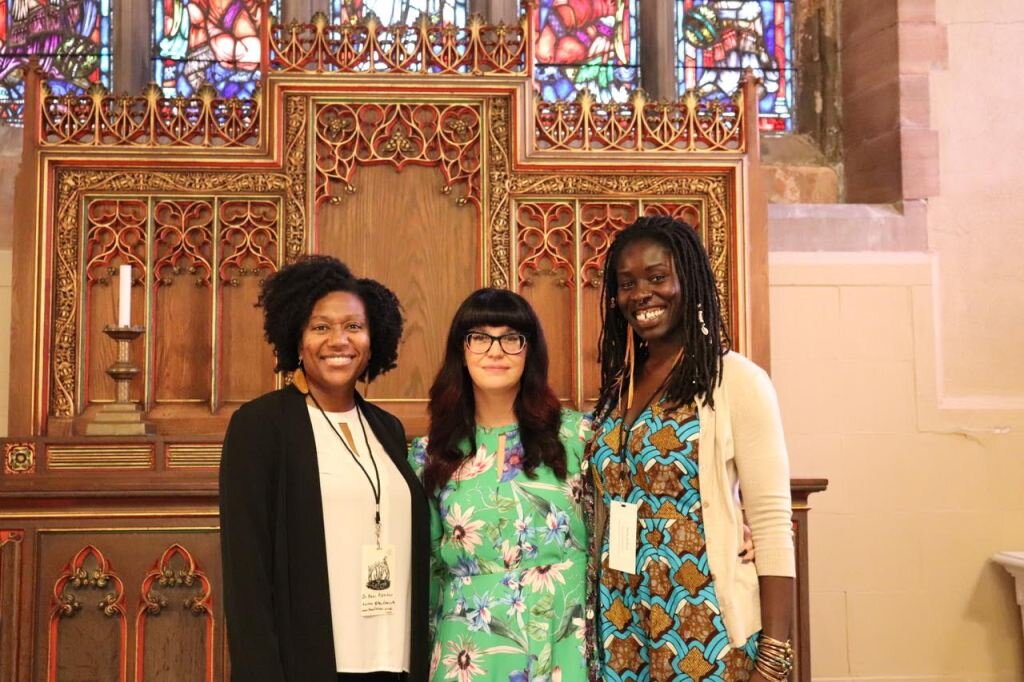Official CRDS partners help us evolve, disseminate, maintain, and sustain the core mission of our Collective. Our partners are individuals, groups, and organizations who actively seek out to decolonize their understanding and practices around death and dying, and who help anchor our mission (with link to our mission on website) through dissemination, application and further enhancement of these perspectives. Essentially, Our CRDS partners not only support our mission, they put it in effective action. If you would like to work with us, have ideas how to expand our reach or want to support us in other ways, please contact us at info@radicaldeathstudies.com
CRDS Partnerships
Individuals, groups, and organizations who agree to be official partners of CRDS are all aligned with and support our mission. As partners, (1) we mutually benefit from the collaboration, (2) see the direct benefits of our work amplified through implementation and (3) create events to have a quantifiable, visceral social impact.
CRDS partners are people and organizations who actively seek to decolonize their understanding and practices around death and dying, and who will help anchor this perspective by dissemination, application, and further enhancement of our mission. Essentially, we (CRDS and partner) want to support each other in this category, but we need to define what we give and what we get.
CRDS partners will teach our canon, facilitate workshops at our annual conference, establish educational master classes, and support CRDS tours for education towards enhancing our mission to radicalize death practice, and other programmatic collaborations and mutual features in publications.
CRDS Partnerships
The National End-of-Life Doula Alliance “NEDA” is a diverse and inclusive 501c6 non-profit membership business league that serves as a “big tent” for those who share its mission, vision, and values; and who seek to learn about, promote, and provide educational and professional support for its members. NEDA's mission is to influence positive changes in how people experience end of life by developing and advocating numerous efforts that improve access to a broad spectrum of holistic non-medical support provided by end-of-life doulas (EOLDs). Our goal is to elevate the role of EOLDs to a position that is recognized, understood, utilized, and well-integrated into mainstream end-of-life care practices.
Learn more about NEDA at www.nedalliance.org
Comfort Homesake
Comfort Homesake is a multi-generational, multi-lingual, multi-faith community based organization dedicated to preparing & supporting families managing chronic diseases and/ or serious illnesses. Since 2004, Comfort Homesake has been preparing families, professionals, healthcare providers, and community members with engaging and effective advance health care planning trainings, programs, and services. Contact us now at info@comforthomesake.com for more information and visit our website to learn more about Comfort Homesake: www.comforthomesake.com
Maui Nurtures
Maui Nurtures was founded in 2018 by African-Canadian Robin Garrison, RN. With Robin's experience with Hospice and Palliative Care she found that there was a need in her community that was not fulfilled and wanted to fill that gap. In addition to assisting people in their homes who would otherwise not receive services, Robin educates the community on death, dying and living the best life you can while you are here. Robin hopes to reach a diverse population with her work and would like to help diversify the field of Hospice, Palliative Care, Death and Dying. Robin is a mother of 5, midwife, hospice nurse, and massage therapist living on the island of Maui in Hawaii.
The Order of The Good Death
The Order of the Good Death was founded in 2011 and began as a small but passionate collective of funeral industry professionals, academics, and artists who were exploring ways to prepare a death phobic culture for their inevitable mortality through their own work. The work of The Order has since grown into an international movement focused on providing education, resources and support to help people live better and in turn, die better. This nonprofit publishes articles, produces a video and podcast series, and hosts the popular event series, Death Salon, as well as raises money for other charitable organizations doing crucial death work like Border Angels, Translifeline, and Colibri Center.You can read The Order’s tenets here.
Death & Culture Network (DaCNet) was founded in 2016 in University of York, UK. DaCNet seeks to explore and understand cultural responses to mortality. It focuses on the impact of death and the dead on culture, and the way in which they have shaped human behaviour, evidenced through thought, action, production and expression. The network is committed to promoting and producing an inter-disciplinary study of mortality supported by evidence and framed by theoretical engagement.
DaCNet coordinates with St Leonards Hospice the York Dead Good Festival each year in May during Dying Awareness Week, hosts a reading group, the York Dead and Culture Walk (a learning and teaching tool as a self-guiding podcasted walk) and the Emerald Series in Death and Culture.
Queer Death Studies Network: International Queer Death Studies Network (QDSN), launched in 2016 in Linköping (Sweden), constitutes a space for researchers, students, artists, activists, and other practitioners who critically and (self) reflexively investigate and challenge conventional normativities, assumptions, expectations, and regimes of truths that are brought to life and made evident by death, dying, and mourning.
Conventional engagements with the questions of death, dying and mourning are insufficient and reductive: they are often governed by the normative notions of the subject; interhuman and human/nonhuman bonds; family relations and communities; rituals; and finally, experiences of grief, mourning, and bereavement. Moreover, these engagements are often embedded in constraining beliefs in life/death divides, constructed along the lines of conventional religious and/or scientific mind/body dualisms. Against this background, QDSN serves as a site for ‘queering’ traditional ways of approaching death both as a subject of study and philosophical reflection, and as a phenomenon to articulate in artistic work or practices of mourning.
Website: https://queerdeathstudies.wordpress.com/
FB: https://www.facebook.com/groups/queerdeathstudies/
Twitter: https://twitter.com/Queer_Death
Instagram: https://www.instagram.com/queerdeath/?hl=en






